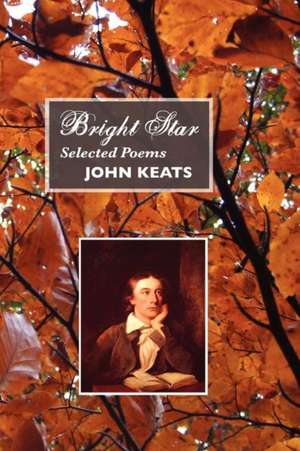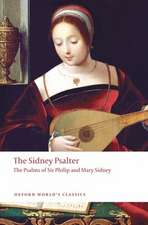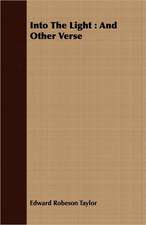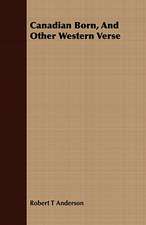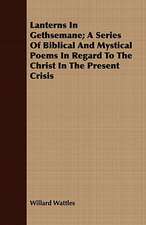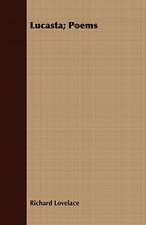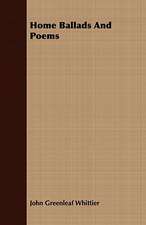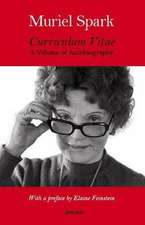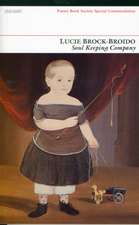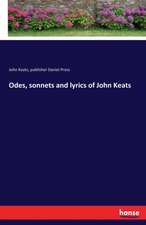Bright Star: British Poets
Autor John Keats Editat de Miriam Chalken Limba Engleză Paperback – 2012
This book gathers the most potent passages from the poetry of John Keats (1795-1821) together, including the famous 'Odes', the sonnets, the luxuriously sensuous 'Eve of St Agnes', the mysterious and atmospheric 'La Belle Dame Sans Merci', and extracts from 'Lamia', 'Endymion' and 'Hyperion'.
This edition has been updated with new poems and a revised text
John Keats is one of the few British poets who is truly ecstatic and wild. Keats is known for his ornate language, memorable phrases ('made sweet moan' in 'La Belle Dame Sans Merci'), Romantic indulgences, and a tendency to gush and exaggerate. Keats is one of a few poets who write in English in a shamanic manner.
John Keats reaches the pinnacle of British poetry, as W. Jackson Bate, typical among critics, says: 'the language of his greatest poetry has always held an attraction; for there we reach, if only for a brief while, a high plateau where in mastery of phrase he has few equals in English poetry, and only one obvious superior.'
Like Arthur Rimbaud, and like the poet he is most compared with, Percy Bysshe Shelley, John Keats burnt fiercely and died young. He is a poet as martyr and hero, a Vincent van Gogh of poesie. He is famous for his sensual odes - 'Ode to a Grecian Urn', 'Ode to Melancholy', 'To Autumn', 'Ode to Psyche' and 'Ode to a Nightingale' - the poems 'Lamia', 'Endymion' and 'Hyperion', the luxuriant 'The Eve of St Agnes', a group of sonnets, and the strange, haunting fairy tale poem 'La Belle Dame Sans Merci'.
John Keats is a typical Romantic poet: he used pagan imagery; he employs much ancient Greek mythology; he is a shamanic poet, who writes in feverish bouts; he is a 'poet's poet'; he wrote searing short poems, and attempted long, epic sequences; he revered the right authors (John Milton, William Shakespeare, the ancient Greeks); he died young; and he travelled to Italy, the key destination for the authentic Grand Tour experience.
British Poets Series. Illustrated. Bibliography and notes. ISBN 9781861713353. 128 pages.
www.crmoon.com
| Toate formatele și edițiile | Preț | Express |
|---|---|---|
| Paperback (3) | 56.08 lei 21-33 zile | +23.99 lei 6-12 zile |
| Random House UK – 30 sep 2009 | 56.08 lei 21-33 zile | +23.99 lei 6-12 zile |
| Penguin Books – 31 aug 2009 | 126.57 lei 3-5 săpt. | |
| Crescent Moon Publishing – 2012 | 78.89 lei 6-8 săpt. | |
| Hardback (1) | 192.82 lei 6-8 săpt. | |
| Crescent Moon Publishing – apr 2012 | 192.82 lei 6-8 săpt. |
Preț: 78.89 lei
Nou
Puncte Express: 118
Preț estimativ în valută:
15.10€ • 15.82$ • 12.48£
15.10€ • 15.82$ • 12.48£
Carte tipărită la comandă
Livrare economică 11-25 aprilie
Preluare comenzi: 021 569.72.76
Specificații
ISBN-13: 9781861713353
ISBN-10: 1861713355
Pagini: 128
Dimensiuni: 156 x 234 x 7 mm
Greutate: 0.19 kg
Ediția:3
Editura: Crescent Moon Publishing
Seria British Poets
ISBN-10: 1861713355
Pagini: 128
Dimensiuni: 156 x 234 x 7 mm
Greutate: 0.19 kg
Ediția:3
Editura: Crescent Moon Publishing
Seria British Poets
Notă biografică
Recenzii
"Littered with sensuous descriptions of nature's beauty, Keats's odes also pose profound philosophical questions" Sunday Telegraph "Sublime" Sunday Times "In what we call natural magic, he ranks with Shakespeare...no-one else in English poetry has...his perception of loveliness" Matthew Arnold "One of the half-dozen greatest English writers" Edmund Wilson "His letters are certainly the most notable and most important ever written by any English poet" T.S. Eliot
Extras
Bright star, would I were steadfast as thou art--
Not in lone splendour hung aloft the night
And watching, with eternal lids apart,
Like nature's patient, sleepless Eremite,
The moving waters at their priestlike task
Of pure ablution round earth's human shores,
Or gazing on the new soft-fallen mask
Of snow upon the mountains and the moors--
No--yet still stedfast, still unchangeable,
Pillow'd upon my fair love's ripening breast,
To feel for ever its soft fall and swell,
Awake for ever in a sweet unrest,
Still, still to hear her tender-taken breath,
And so live ever--or else swoon to death.
La Belle Dame Sans Merci
Ah, what can ail thee, wretched wight,
Alone and palely loitering;
The sedge is wither'd from the lake,
And no birds sing.
Ah, what can ail thee, wretched wight,
So haggard and so woe-begone?
The squirrel's granary is full,
And the harvest's done.
I see a lily on thy brow,
With anguish moist and fever dew;
And on thy cheek a fading rose
Fast withereth too.
I met a lady in the meads
Full beautiful, a faery's child;
Her hair was long, her foot was light,
And her eyes were wild.
I set her on my pacing steed,
And nothing else saw all day long;
For sideways would she lean, and sing
A faery's song.
I made a garland for her head,
And bracelets too, and fragrant zone;
She look'd at me as she did love,
And made sweet moan.
She found me roots of relish sweet,
And honey wild, and manna dew;
And sure in language strange she said,
I love thee true.
She took me to her elfin grot,
And there she gaz'd and sighed deep,
And there I shut her wild sad eyes--
So kiss'd to sleep.
And there we slumber'd on the moss,
And there I dream'd, ah woe betide,
The latest dream I ever dream'd
On the cold hill side.
I saw pale kings, and princes too,
Pale warriors, death-pale were they all;
Who cry'd--"La belle Dame sans merci
Hath thee in thrall!"
I saw their starv'd lips in the gloam
With horrid warning gaped wide,
And I awoke, and found me here
On the cold hill side.
And this is why I sojourn here
Alone and palely loitering,
Though the sedge is wither'd from the lake,
And no birds sing.
Not in lone splendour hung aloft the night
And watching, with eternal lids apart,
Like nature's patient, sleepless Eremite,
The moving waters at their priestlike task
Of pure ablution round earth's human shores,
Or gazing on the new soft-fallen mask
Of snow upon the mountains and the moors--
No--yet still stedfast, still unchangeable,
Pillow'd upon my fair love's ripening breast,
To feel for ever its soft fall and swell,
Awake for ever in a sweet unrest,
Still, still to hear her tender-taken breath,
And so live ever--or else swoon to death.
La Belle Dame Sans Merci
Ah, what can ail thee, wretched wight,
Alone and palely loitering;
The sedge is wither'd from the lake,
And no birds sing.
Ah, what can ail thee, wretched wight,
So haggard and so woe-begone?
The squirrel's granary is full,
And the harvest's done.
I see a lily on thy brow,
With anguish moist and fever dew;
And on thy cheek a fading rose
Fast withereth too.
I met a lady in the meads
Full beautiful, a faery's child;
Her hair was long, her foot was light,
And her eyes were wild.
I set her on my pacing steed,
And nothing else saw all day long;
For sideways would she lean, and sing
A faery's song.
I made a garland for her head,
And bracelets too, and fragrant zone;
She look'd at me as she did love,
And made sweet moan.
She found me roots of relish sweet,
And honey wild, and manna dew;
And sure in language strange she said,
I love thee true.
She took me to her elfin grot,
And there she gaz'd and sighed deep,
And there I shut her wild sad eyes--
So kiss'd to sleep.
And there we slumber'd on the moss,
And there I dream'd, ah woe betide,
The latest dream I ever dream'd
On the cold hill side.
I saw pale kings, and princes too,
Pale warriors, death-pale were they all;
Who cry'd--"La belle Dame sans merci
Hath thee in thrall!"
I saw their starv'd lips in the gloam
With horrid warning gaped wide,
And I awoke, and found me here
On the cold hill side.
And this is why I sojourn here
Alone and palely loitering,
Though the sedge is wither'd from the lake,
And no birds sing.
